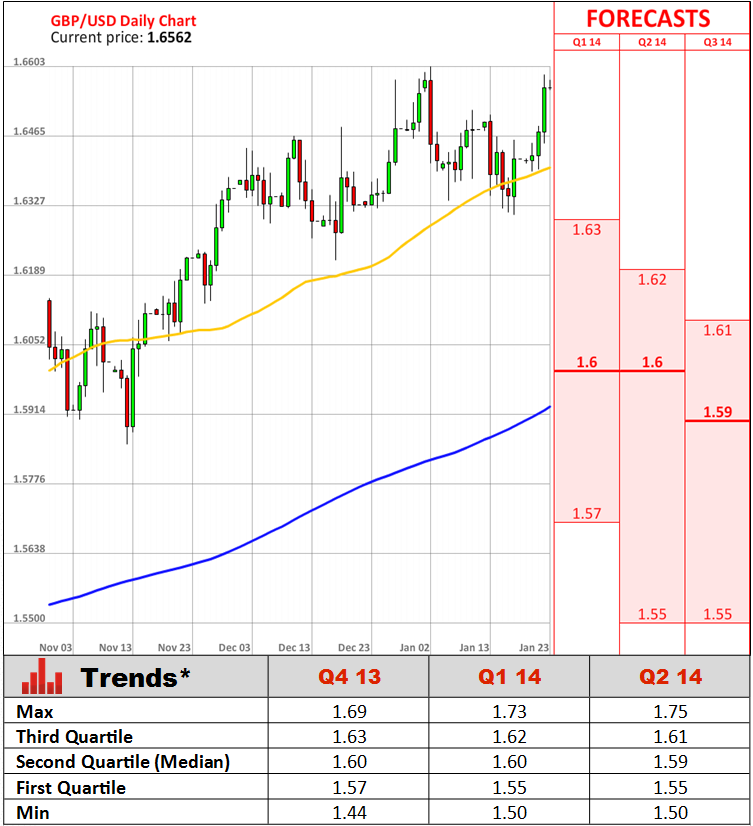Note: This section contains information in English only.

Thu, 23 Jan 2014 06:54:03 GMT
Source: Dukascopy Bank SA
"Extended improved economic activity and stronger business confidence have fed through to cause substantial improvement in the labour market in recent months. We expect the unemployment rate to get down to 7 percent in the second quarter of 2014."
- Howard Archer, an economist at IHS Global Insight
The unemployment rate plunged to 7.1% in December– the lowest since February 2009, while the number of people claiming jobless benefits sank by 24,000. Even though, this is not as much as analysts expected of a 32,000 drop, the latest data from the U.K. labour market is definitely reflecting the ongoing recovery. Currently, there are 30.15 million people employed in Britain– the highest level since records began in 1971.
Immediately after the report the cable skyrocketed, with the Sterling rising 0.41% to 1.6546 against the U.S. Dollar, while versus the Euro the Pound gained 0.49% and reached 0.8187. Stronger-than-expected data triggered further concerns the central bank will start raising interest rates soon, perhaps, during the next policy meeting already. At the same time, MPC minutes showed policymakers were univocal on interest rate and stimulus, while they also pledged not to consider raising interest rates even if unemployment hits the threshold of 7%.
One of the BoE's major concern now is productivity, which still lags behind other indicators. At the same time, the central bank feels more free to remain dovish on the monetary policy, as inflationary pressure is expected to remain contained. Earlier this month, a report showed CPI touched the 2% target in December.
© Dukascopy Bank SA
Actual Topics
Subscribe to "Fundamental Analysis" feed
Souscrire
To learn more about Dukascopy Bank CFD / Forex trading platform, SWFX and other trading related information,
please call us or make callback request.
please call us or make callback request.
For further information regarding potential cooperation,
please call us or make callback request.
please call us or make callback request.
To learn more about Dukascopy Bank Binary Options
/ Forex trading platform, SWFX and other trading related information,
please call us or make callback request.
please call us or make callback request.
To learn more about Dukascopy Bank CFD / Forex trading platform, SWFX and other trading related information,
please call us or make callback request.
please call us or make callback request.
To learn more about Crypto Trading / CFD / Forex trading platform, SWFX and other trading related information,
please call us or make callback request.
please call us or make callback request.
To learn more about Business Introducer and other trading related information,
please call us or make callback request.
please call us or make callback request.
For further information regarding potential cooperation,
please call us or make callback request.
please call us or make callback request.